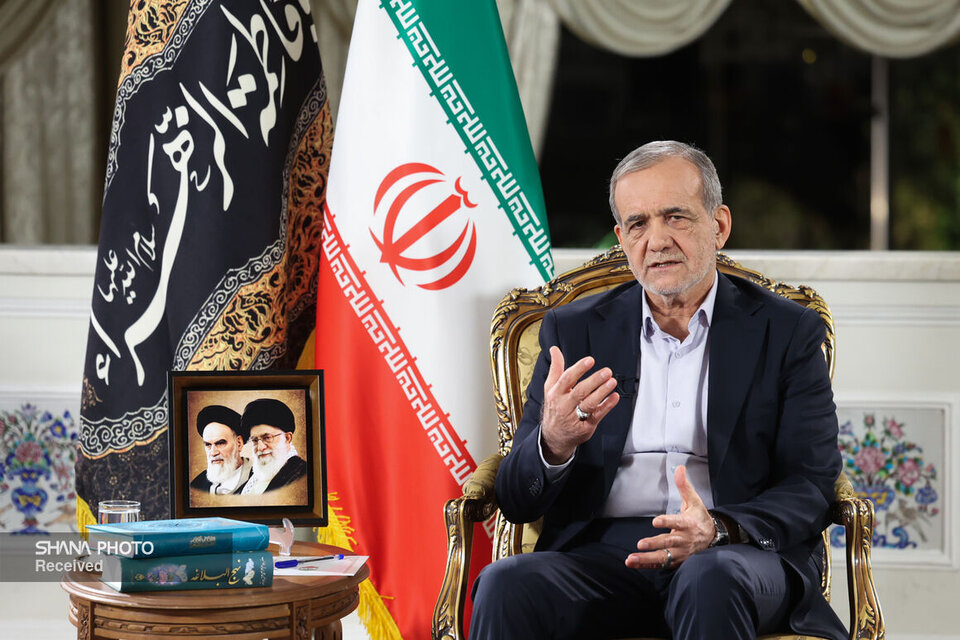SHANA (Tehran) -Iranian president highlighted the importance of leveraging expert opinions to solve national issues, including the energy shortages, stating, "We welcome anyone who can help resolve this challenge”.
In a live television interview on Monday night (December 2), Masoud Pezeshkian addressed the country’s energy shortage, noting, "We are facing serious discrepancies in the energy sector, including electricity, water, and gas. Electricity consumption per capita in Iran is several times higher than in other countries, and our production does not meet demand.”.
He referred to Iran’s significant gas resources, stating the country should not be facing such deficits.
"We must rely on specialists to address these problems and allow experts to make decisions and offer solutions. The government welcomes anyone who can assist in solving the energy imbalance issue," he said.
The president added, "When we took office, fuel reserves in power plants were over 1 billion cubic meters as last year, it's over 3 billion cubic meters, and if it decreases to 700 million, we won’t be able to supply fuel to the plants. If we don’t manage this, we’ll have to cut gas in winter”.
Talking on gasoline prices, Pezeshkian said, "We face imbalances in electricity, gas, water, finances, and the environment that could lead to a crisis. This year, electricity production was supposed to increase, but it didn’t, and our power plants can't meet consumption demands”.
He continued, "We’ve used temporary measures instead of real solutions. The energy imbalance has persisted across previous administrations and has now reached a crisis point”.
The president warned that failing to manage resources for future generations would leave behind "scorched earth," despite Iran holding the world’s second-largest gas reserves. "We should not be in this situation but we haven’t implemented real solutions”.
Pezeshkian explained that the energy shortage is interconnected with other issues. "We are spending $4 billion on gasoline imports while struggling to pay retirees, farmers, and government employees, and then selling gasoline at a heavily subsidized price of 1,500 tomans (22 cents) per liter. Should we continue this? This situation needs real solutions, which require expert input and must consider people’s livelihoods”.
He concluded by emphasizing the need for economic growth, investment, and prioritized programs to reduce the energy imbalance.


Your Comment